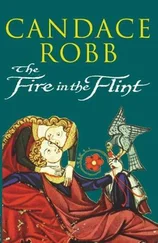For us ‘children of nature’ the island was a paradise, and it was ours. It belonged to us. There were no tourists, and we knew every corner and every backyard. The farmers knew us too. Protected against the wind by tall trees, the thatched, red-bricked farmhouses always stood alone. Framed by water-filled ditches and green meadows, the vegetable gardens always separated houses from stalls and barns. The sweet-smelling perfume of phlox surrounding the vegetable gardens, mixed with that of hay and dung. We played in the sweet-smelling warmth of the hay-barn, springing bravely from the highest bale on to the straw below. It was here that we learned about a taboo subject, that was not taught in school, or at home, and that was of sexual behaviour. We learned from the animals on the farm, from the horses and pigs, and from the hand of ‘mother nature’. The story of the stork belonged at home.
All in all, our lives progressed along modest lines. We were happy and without complaints and enjoyed the smallest of surprises. My pride and joy was my old bicycle which shone like new through my own efforts and care. We used to ride all of fifteen kilometres from Zierikzee to Haamestede and West Schouwen, where the widest dunes were to be found, and the largest beach in the whole of Holland. When natural dunes were not to be found, then huge dykes protected our land. One of them was to be found not far away from Zierikzee. Every portion of the coastline with a dyke, was our swimming pool, without tiles, pipes or warm water, very often cold, but to compensate for that, endless and beautiful.
We never had to go to school on Wednesday afternoons. In the fine weather, we played in the water, amongst the seaweed and slippery jelly-fish until the sun went down. The seagulls and crows used to pick between the green-grey stones for dyke mussels, throwing them in mid-flight on to the stones below to break them open. When we didn’t have our bicycles with us, then we sprang on to a passing hay-wagon to go home, tired, brown from the sun and exhausted from the water.
CHAPTER 3
Political Revolution
The Allies believed that with their success in 1918, they had set the westerly pattern for democracy. When the truth was known, it was a government reform that endured a gigantic crisis. Worldwide more and more people turned away from it.
Such was the case in Italy — although it had been one of the ‘victors’, they too suffered from commercial hardship. It had not helped them to suddenly join the side of those ‘victors’ and also declare war on Germany. It was just such poverty that turned its people to Communism. A Bolshevik uprising in the north, threatened to turn into civil war, only coming to an end in 1922 as the Duce Mussolini came to power and ended the chaotic conditions.
A large part of the world was very enthusiastic about that man. In those times of commercial disorder ‘strong men’ were rare. After visiting Italy, one could report that the trains ran punctually again, that poverty had vanished and above all, there were then no unemployed.
The British Prime Minister, Ramsey MacDonald, visited Mussolini in 1933, and was one of those enthusiasts, as was Winston Churchill. Mahatma Ghandi, the Chief Minister of India’s Congress Party, described him as being Italy’s ‘saviour’. There were many admirers also in Holland, including many prominent people. The result of a survey was published in Holland’s leading newspaper, Allgemeine Handelsblatt, that in forming this Fascist State, Mussolini was, after the inventor Edison, the ‘greatest personality’ of that epoch.
However, in Germany, the situation could not continue as it had done. The German Kaiser chopped his wood in Doorn in Holland, and his land was a slowly dying kingdom. After twelve years in which thirteen chancellors had ruled, the land was very near bankruptcy and had nearly 7 million unemployed. The German population was ripe for a radical change in politics. The man, who after years of campaigning, of attending hundreds of party-sittings and who in 1930 entered parliament with 107 other democratically voted politicians, was none other than Adolf Hitler. Not quite three years later, on 30 January 1933, President von Hindenburg named that Austrian-born man as Reichskanzler.
The Leader of the National Social German Workers Party, i.e. the Nationalsozialistischen Deutschen Arbeiterpartei, the NSDAP, was then 44 years old. Like Napoleon, he was obsessed with his own ideas and the intention of altering everything overnight. It appears that he did just that. The disputes and quarrels, from those in power who had brought Germany to the edge of bankruptcy, were silenced. The authorising laws legalising Hitler’s regulations were made without consent of Parliament. Theodore Heuss was among those consenting. He was later to become the Federal President.
The sceptics in the land, as well as those abroad, waited and listened. Millions of idealists, including those wanting to make a career, the adaptable and those who wanted to ride on the turn of the tide, flocked to the new flag in such numbers that membership was stopped. In among the adaptable, was none other than Prince Bernhard von Lippe, who was later to become Prince Consort to Holland’s Queen. He allowed himself to be selected as a candidate for Hitler’s Sturmabtailung, the SA, but joined the SS, i.e. the Schutzstaffeln or ‘protection squad’, which befitted his social status. Driving to many a pleasant NS Rally and ‘guard duty’ were among his duties, just like any other. He, as a confirmed SS-man however, changed his convictions more than once along the way.
The people saw a ‘messiah’ in Hitler, who did solve the unemployment problem, who did ban Communism from Germany and who did free the land from the chains of the Versailles Pact. Already by the first days of 1935, on 13 January in fact, the Saar area was resurrected through a referendum. A 90.8% result demanded that it be reclaimed and returned to its homeland. In March of the next year, battalions from the Wehrmacht marched over the Rhine and moved into garrisons there. They reclaimed their own western-lying territory, having been declared a demilitarised zone by the former ‘victors’.
The defeated, and still lethargic population from 1918, suddenly became self-propelled into social and commercial activities. It became a year of events. Successes were celebrated with brass bands, ceremonies where uniforms could be seen and Richtfeste, whereby a small tree with colourful streamers, was placed on the roof-beams of a new building before being tiled. For the very first time a state made it possible for the small man to go abroad on holiday. It was through the organisation Kraft durch Freude, or ‘Strength through Joy’. Places like Madeira, Scandinavia or Italy, were the targets for the traveller, on board large modern liners. For the majority, it was the very first holiday that they had ever had. The ‘Bohemian Private’, as Hitler was scathingly called by the envious, had made that possible, whereas kings and the rich colonial powers never had.
Foreigners from all over the world visited Germany and were impressed. Many diplomats and ministers came, including the former British Prime Minister Lloyd George. He greeted the new Chancellor, in Obersalzberg, as one of the ‘victors’. Others included representatives of both French and British front-line soldiers from WWI. The famous American pilot, Charles Lindberg, also paid a visit, as did the abdicated King, the Duke of Windsor. France’s Ambassador, André Francois-Poncet, arrived in a highly polished, black Mercedes owned by the state, on his visit to the Reichsparteitag in Nuremberg.
In 1938, Winston Churchill wrote the following to Hitler, “Should England ever find herself in a national disaster as Germany did in 1918, we would pray to God that he sends us a man with your strength, will and mentality”.
Читать дальше












